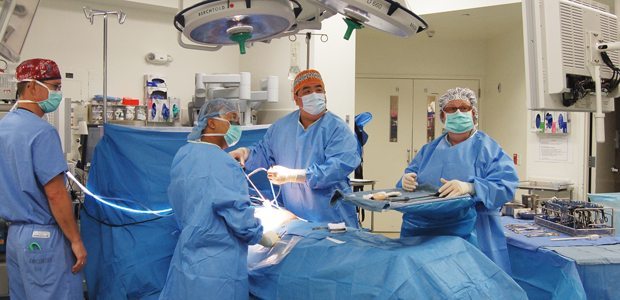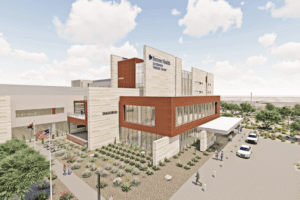Arizona hospitals had a $30 billion statewide economic impact in 2018, according to a new economic impact report commissioned by the Health System Alliance of Arizona.
The report was conducted by Rounds Consulting Group and measured the overall economic impact to Arizona through direct, indirect and induced jobs.
The HSAA said that although $30 billion is a large number, it could still be a conservative estimate because hospitals lead to health care-related employment both on and off campus.
“Hospitals have been known as a major employer throughout the state, but the findings in this report show how embedded the industry is in Arizona’s economy,” said Jennifer Carusetta, HSAA executive director. “Our hospitals not only provide a critical economic foundation but will also be a key economic driver moving forward. We are proud to play a role in making Arizona a better place to live, work and raise a family.”
Direct, indirect and induced jobs earned a combined $12.3 billion in wages. Direct jobs are jobs created by the hospital itself; indirect jobs are jobs created by the hospital’s participation in commerce, such as supplier or delivery jobs; and induced jobs are created by the economic impact of the hospitals — these jobs are created when hospital employees spend money in their regions.The report found that Arizona hospitals created a total economic impact of $29.8 billion — that’s 184,969 jobs, or about 7 percent of the state’s total workforce of 2.9 million.
State and local governments collected $808.7 million in tax revenues from hospitals in 2018, also according to the report.
“The data is clear when it comes to the impact of Arizona hospitals; their reach goes far beyond the examination room,” said Jim Rounds, president of Rounds Consulting Group. “There are very few industries that provide direct services to citizens, employ thousands of people and also operate as an economic driver for the entire state.”
The HSAA said hospitals can serve as a necessary hub for advanced health care research and development, as well as medical tourism — when people travel for specific procedures — in certain regions.
According to the report, increased economic activity is important for urban areas as well as rural areas, where the high-wage industry can be responsible for a disproportionate portion of the area’s economy. In addition, healthy hospital activities can also increase surrounding property values and create opportunities for Arizona’s state universities.
“This analysis is critically important for policymakers who are concerned about maintaining and enhancing Arizona’s quality of life,” said Glenn Hamer, president and CEO of the Arizona Chamber of Commerce and Industry.
“We need to ensure that Arizona’s health care sector keeps pace with our growing state, delivering outstanding care and plentiful options,” he said. “Not only are Arizona’s health care systems essential to the state’s economy, but they make it a better place to live and work.”
The report from HSAA is the first in a series analyzing the overall impact of Arizona’s hospital systems.
“As we enter this new decade and implement policies that put Arizona on the right path for continued success, it is critical that health care be included in the economic vision of the state,” Rounds said.
This story was originally published at Chamber Business News.




